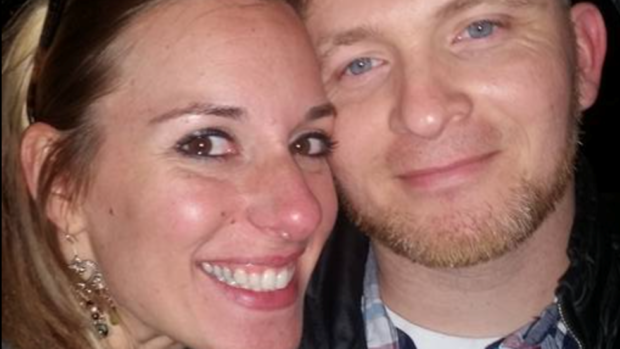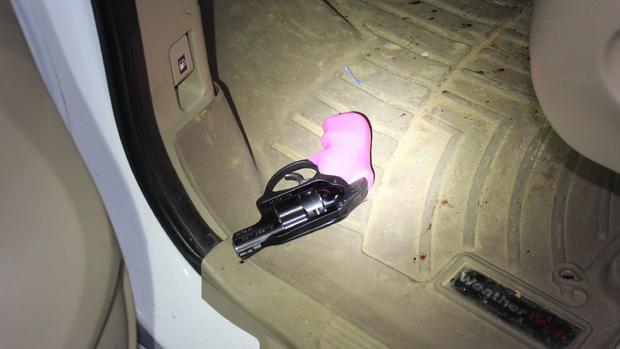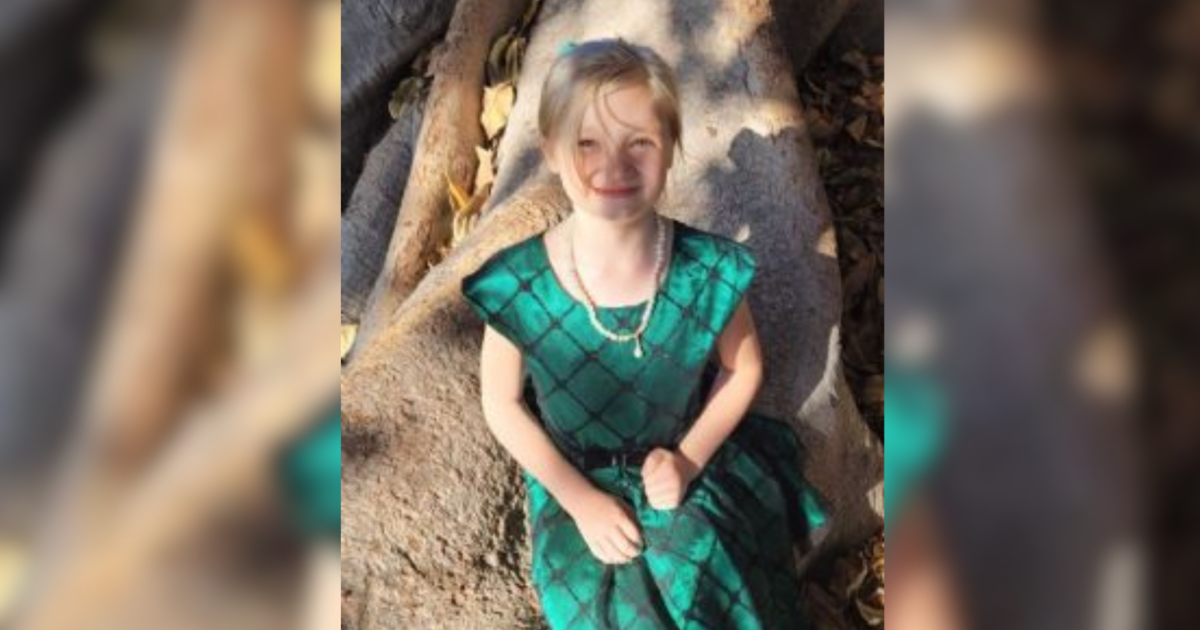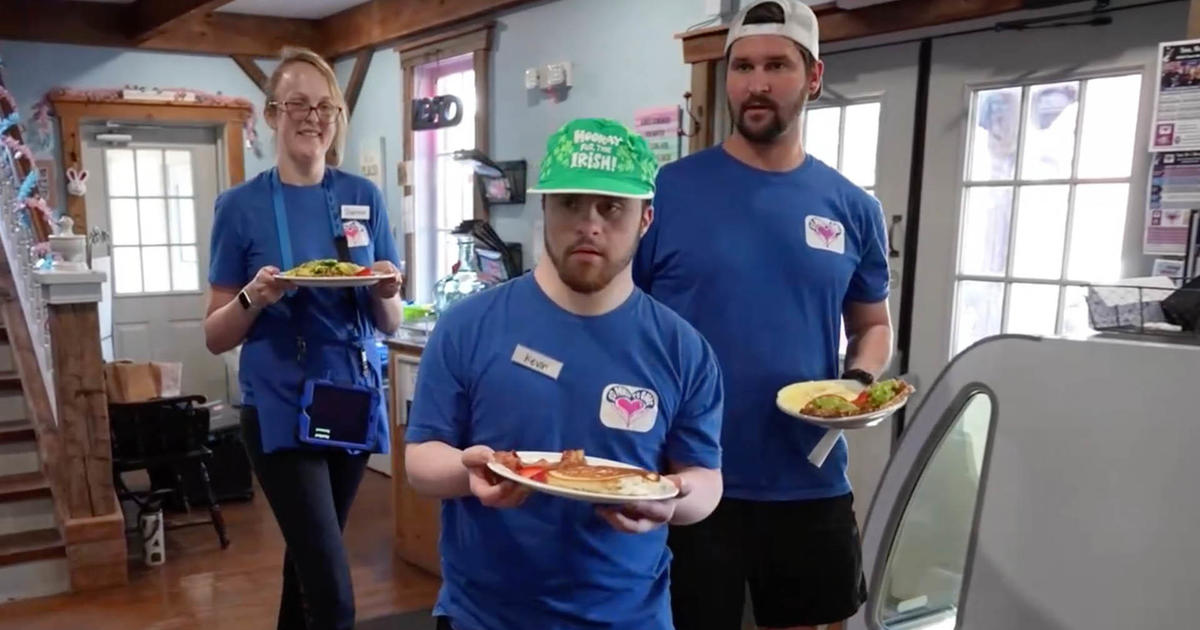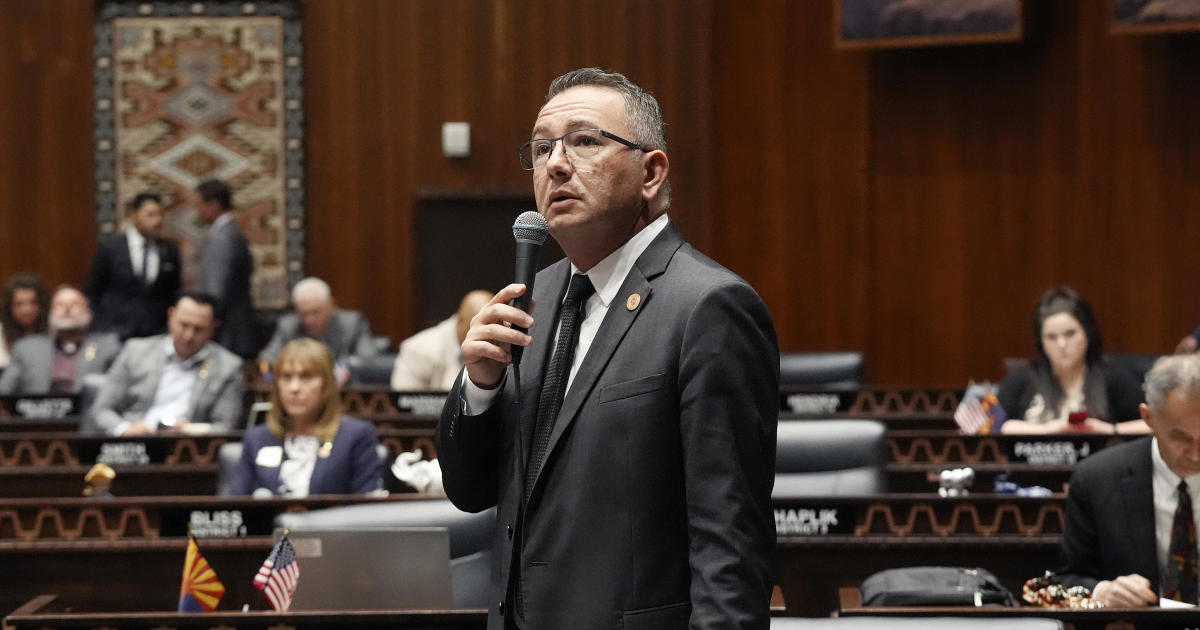Alabama husband wouldn't answer this question when calling 911 to report wife shot
"My wife is shot. I need someone out here, please." It was just after 11 p.m. on May 2, 2017, when 37-year-old Jason Crawford called 911 from outside his own home in Cullman, Alabama, to report that his wife Tiffiney had been shot in the head.
In an exclusive interview for "48 Hours," Crawford told "CBS Mornings" lead correspondent David Begnaud that he remembers that night vividly. "It felt like it was taking longer and longer for anybody to get there," he said. An encore of Begnaud's report, "The Mysterious Death of Tiffiney Crawford," now streaming on Paramount+.
Lead investigator Joseph Parrish told Begnaud that when he first listened to the recording of that 911 call, Crawford's tone caught his ear. "It was very cold," said Parrish. "It didn't sound like somebody that was worried about his wife." But Parrish says he was more concerned about the fact that Jason refused to answer one question that the 911 operator asked repeatedly.
"She asked you 'who's she been shot by,' and you didn't respond. Why not?" Begnaud asked Crawford. "Yeah," Crawford answered, "I just felt like if I said it into existence, it'd be true." Crawford says he could not bring himself to tell the 911 operator that his 32-two-year-old wife, Tiffiney had shot herself.
Body camera footage shows what Cullman County Sheriff's deputies found when they got to the scene. Tiffiney Crawford was slumped over in the driver's seat of her van. There was a pink revolver in her left hand. Jason Crawford says his wife kept the gun in the driver's side door of her vehicle for protection. A deputy can be heard on the bodycam footage asking Jason, "What happened tonight?" "Uh, I—We were arguing" Crawford answers, "I didn't let her in the house … And the last thing I remember … I was going in the house, and I heard a shot, a scream and then another shot." Tiffiney had been shot twice in the head. That night, at least one Sheriff's deputy believed that she had taken her own life.
Cullman County Sheriff Matt Gentry told Begnaud that the morning after the shooting, he decided to turn the case over to the Alabama State Bureau of Investigation. Gentry felt there was a potential conflict of interest because Jason's mother, Ronda Crawford, worked for him as an office manager. "I could have told our guys to work it," Gentry told Begnaud, but "I want full transparency." That's when State Investigator Joe Parrish was assigned to the case and began examining the evidence.
With the gun out for testing, the first thing Parrish wanted to see was the van in which Tiffiney was shot. But the night of her death, the vehicle had been photographed and turned over to Jason and his family. The very next morning--with the Sheriff's permission--the van was scrubbed clean by two family members. Parrish told Begnaud, "It was odd that they would clean it up that quick after something like that."
There was something else that struck Parrish as odd. Tiffiney Crawford had been shot once to the left side of her chin and a second time to her left temple. The gun was found in her left hand, but Tiffiney was right-handed. Two shots to the head are rare in suicide attempts says Parrish, but two shots using a nondominant hand to pull the trigger seemed nearly impossible to the longtime investigator.
A week after the shooting Parrish brought Jason Crawford in for questioning. For the first time, Crawford spoke in detail about a discovery he made the night his wife died. He told Parrish that Tiffiney had been having an affair, and that's what they were arguing about. "I said, you've ruined our home. I was like, you're no longer a part of this," Crawford told Parrish. Crawford says they argued for about an hour, then he went inside to get Tiffiney her work uniform so she could leave. According to Crawford, as soon as stepped inside their home he "heard a shot, a scream and another shot."
When the gun was finally tested for DNA, there were only trace amounts detected. Two samples were identified as male but could not be matched to any one individual. A third sample was so small that there was no way to tell if it belonged to a male or a female. To Parrish, it seemed as if the gun may have been wiped clean and then placed in Tiffiney's hand.
A backlog in the state's ballistics lab would delay Tiffiney Crawford's autopsy report for a year, but State Medical Examiner Dr. Valerie Green told Begnaud that she had her doubts about Jason Crawford's story from the start. "I think the thing that made me think that there could be something else going on with this case is that gunshot wound on the left side of Ms. Crawford's head," she said.
Green says that based on the absence of gunpowder particles and abrasions around the wound to Tiffiney's left temple, she concluded that the shot had to have been fired from at least 10 inches away. "That's indicating that, you know, she's holding her arm outward beyond 10 inches and trying to shoot herself ... Not saying that it's impossible. But it's not likely." It was especially unlikely, says Green, because Crawford reported that when he found Tiffiney in her van, the door was closed. "That was concerning to me," says Green. "For you to be able to hold up a gun and shoot yourself in the head … it would be difficult to do, and that's such a small space."
On March 8, 2018, Green issued her findings and declared Tiffiney's death a murder. More than two months later, the Cullman County District Attorney's office presented their case to a grand jury. Jason Crawford was indicted and charged with his wife's murder. In an interview with Begnaud, Assistant District Attorney Jeff Roberts said, "I couldn't see who else did it. He's the only one who had a motive to do it, for one thing."
"We don't believe Jason is guilty of this at all," Crawford's attorney Robert Tuten told Begnaud. Tuten says that the state's case was completely circumstantial and that investigators had found no physical evidence that Crawford killed his wife. "They did not see blood or anything on him. They found nothing that would indicate he had fired a firearm recently." Tuten says that to him, it was clear that Tiffiney Crawford took her own life because her marriage was coming to an end. "I think she gave up … I think she just fell apart and decided to end it."
Jason Crawford would spend the next four years out on bond, awaiting trial. He says everyone, including his mother-in-law, supported him. "Of all my circle of people who, like my family and friends and stuff, they never questioned it … they never questioned that I wouldn't kill my wife."
The trial began in November 2022. Juror No. 19, Megan Brock, would later tell Begnaud that when the jury finally got the case, they deliberated for several hours without a verdict. Then they requested access to that 911 recording.
About 30 minutes later, they announced they had reached a decision. "So, the 911 call sealed the deal," Begnaud asked Brock. "That was it," she said emphatically.
